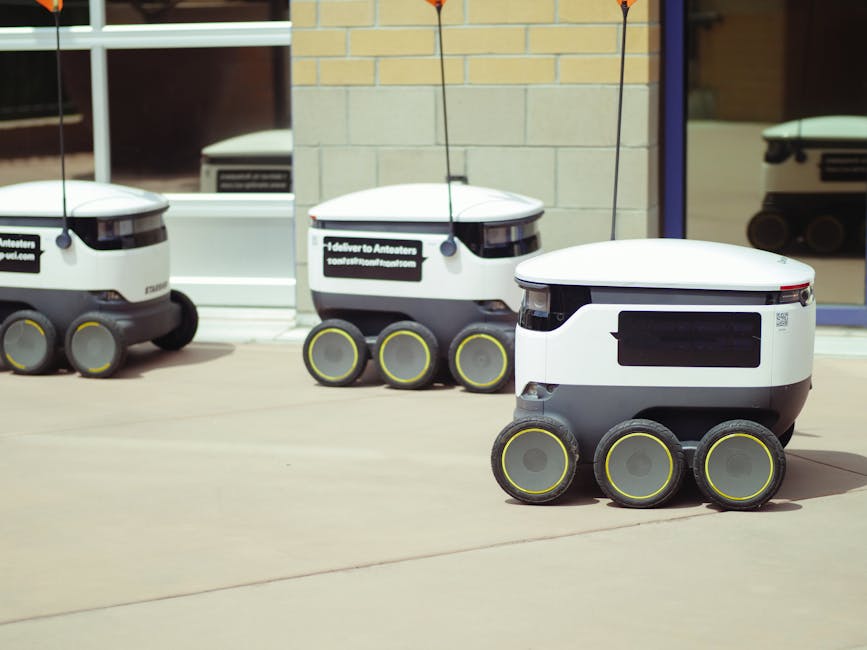No products in the cart.
Navigating the Future: Careers in Autonomous Transport
AI is revolutionizing the transport sector, creating new career paths and transforming existing roles in the mobility landscape.
In the not-so-distant future, the roads will be filled with vehicles that drive themselves. Picture this: a highway where humans are passengers, not pilots, as algorithms navigate the intricate web of urban landscapes. This isn’t science fiction; it’s the burgeoning reality of autonomous transport. As artificial intelligence (AI) redefines mobility, it’s also reshaping the job market—creating new opportunities, while simultaneously rendering some traditional roles obsolete.
The impact of AI on transport jobs is profound. According to a recent study by the World Economic Forum, automation could displace over 85 million jobs globally by 2025, but it could also create 97 million new roles in areas such as AI development, data analysis, and autonomous vehicle maintenance[1]. This duality presents a paradox: as technology advances at breakneck speed, so too must the workforce adapt to remain relevant.

Take the story of Maria, a former truck driver from Texas. After years on the road, she found herself at a crossroads when her company began integrating autonomous trucks into its fleet. Rather than resist the change, Maria embraced it. She enrolled in a local community college program focused on AI and machine learning. Today, she’s not only a technician managing the autonomous fleet but also an advocate for workforce retraining in her community. Her journey exemplifies how adaptability can pave the way for new career paths in an evolving landscape.
But the shift to AI-driven mobility is not just about technical skills. It’s also about understanding the cultural and ethical implications of these advancements. As companies invest in self-driving technology, they must grapple with questions of safety, privacy, and job displacement. For instance, who is responsible if an autonomous vehicle is involved in an accident? Such dilemmas necessitate a workforce that is not only technically proficient but also equipped with critical thinking skills and an ethical framework.
Such dilemmas necessitate a workforce that is not only technically proficient but also equipped with critical thinking skills and an ethical framework.
As we delve deeper into the implications of AI in transport, it’s essential to recognize the diversity of perspectives in this discourse. Innovators argue that the benefits of AI—such as reduced traffic congestion, lower emissions, and enhanced safety—far outweigh the challenges. Companies like Waymo and Tesla are leading the charge, pushing boundaries and investing heavily in research and development. Their vision is one where AI enhances human capabilities, creating a synergy that benefits society as a whole.
However, critics caution against a blind rush into automation. They highlight the need for robust policies to support displaced workers and ensure equitable access to new job opportunities. The fear of job loss looms large, particularly in sectors like trucking and public transport, where many individuals rely on these roles for their livelihoods. Addressing these concerns is paramount for a smooth transition to a more automated future.
One promising avenue for addressing workforce displacement lies in reskilling programs. Governments and educational institutions worldwide are beginning to recognize the urgency of preparing workers for the jobs of tomorrow. Initiatives like the EU’s “Digital Skills and Jobs Coalition” aim to equip individuals with the skills necessary to thrive in an AI-driven economy. By fostering partnerships between tech companies, educational institutions, and governments, we can create a pipeline of skilled workers ready to meet the demands of the future.
Moreover, the rise of the gig economy offers another layer of complexity. Many professionals, particularly younger generations, are gravitating towards freelance and contract work. This shift allows for greater flexibility and the opportunity to engage in multiple projects, often involving advanced technologies like AI and data analytics. In this context, workers need to cultivate a diverse skill set, embodying adaptability and innovation.
Looking forward, the question remains: what will the future of transport careers look like? While the landscape is still unfolding, several key roles are emerging as essential in the age of autonomous mobility. Here are a few to watch:
By fostering partnerships between tech companies, educational institutions, and governments, we can create a pipeline of skilled workers ready to meet the demands of the future.
- AI Systems Managers: Professionals who oversee the integration of AI technologies into existing transport systems, ensuring seamless functionality.
- Data Analysts: Experts who analyze data from autonomous vehicles to improve performance and safety.
- Ethics Compliance Officers: Individuals who navigate the ethical implications of AI in transport, ensuring that companies adhere to legal and moral standards.
- Vehicle Maintenance Technicians: Technicians specializing in the upkeep of autonomous vehicles, a role that will require new skills and certifications.
- Mobility Consultants: Professionals who advise cities and companies on AI implementation, focusing on efficiency and sustainability.
In conclusion, the road to a future filled with autonomous transport is paved with both promise and challenges. As AI takes the wheel, individuals like Maria remind us that adaptability and continuous learning are crucial. The future may be uncertain, but one thing is clear: the jobs of tomorrow will require a blend of technical prowess, ethical consideration, and innovative thinking.











